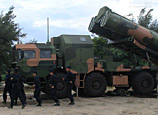
U.K.-registered Gingko Tree Investment Ltd., a wholly owned unit of China's State Administration of Foreign Exchange (SAFE), has invested more than 1.6 billion U.S. dollars in at least four deals, including a water utility, student housing, and office buildings in London and Manchester, according to data providers that track property deals and disclosures by the companies that received the investments.
People familiar with Gingko Tree said there have been other deals, but the details have not been disclosed publicly.
China Investment Corporation, China’s sovereign wealth fund, has also been actively investing in U.K. property and infrastructure. Last November, CIC bought Winchester House for about 400.6 million U.S. dollars. Its investments in U.K. infrastructure include small stakes in Heathrow Airport Holdings and water utility Thames Water.
Sovereign wealth funds from Qatar to Azerbaijan to Malaysia have also invested in office and commercial real estate in London in recent years. “When the U.S. subprime mortgage crisis erupted in 2008, the United Kingdom was also facing a severe subprime crisis. A large number of real estate derivatives ran into problems, delivering a heavy blow to the U.K. housing industry. “
“As housing prices in the country have dropped significantly, it is indeed a good time to invest in U.K. property from the perspective of business investment,” Xi Junyang, deputy director of the Research Center for Modern Finance at Shanghai University of Finance and Economics, told International Financial News.
China has invested the vast majority of its huge foreign exchange reserves in U.S. government bonds as well as a relatively small amount of non-dollar sovereign bonds over the past several decades. However, the SAFE has made great efforts to diversify China’s foreign exchange reserves in recent years, and is increasingly looking for investments in high-yielding assets.
“The SAFE is a government agency, and should serve the public interest. Its main duty is to preserve and increase the value of foreign exchange reserves and maintain the country’s financial stability. The SAFE’s continued investments in U.S. government bonds, which need to be diversified, can effectively ensure the security and liquidity of the reserves,” Xi said.
The SAFE’s initial foray into private equity turned out to be an embarrassing failure. That involved its 2.5-billion-U.S.-dollar investment in 2008 in a fund run by U.S. private-equity firm TPG. The SAFE suffered losses when the fund’s subsequent investment in Washington Mutual was wiped out after the lender’s closure by the U.S. government.
“It is right to diversify the foreign exchange reserves,” Xi noted. “As China’s sovereign wealth fund, CIC should be put in charge of all overseas investment on behalf of the Chinese government, which is a common practice in many countries. Because CIC is administered by the Ministry of Finance rather than the central bank or SAFE, there are currently two institutions investing abroad on behalf of the Chinese government. This institutional barrier can totally be removed.”
Read the Chinese version at: 中国资本相中英国楼市?, Source: International Finance News, Author: Fu Bilian
















 Beijing Film Academy releases list of re-examination
Beijing Film Academy releases list of re-examination


![]()
